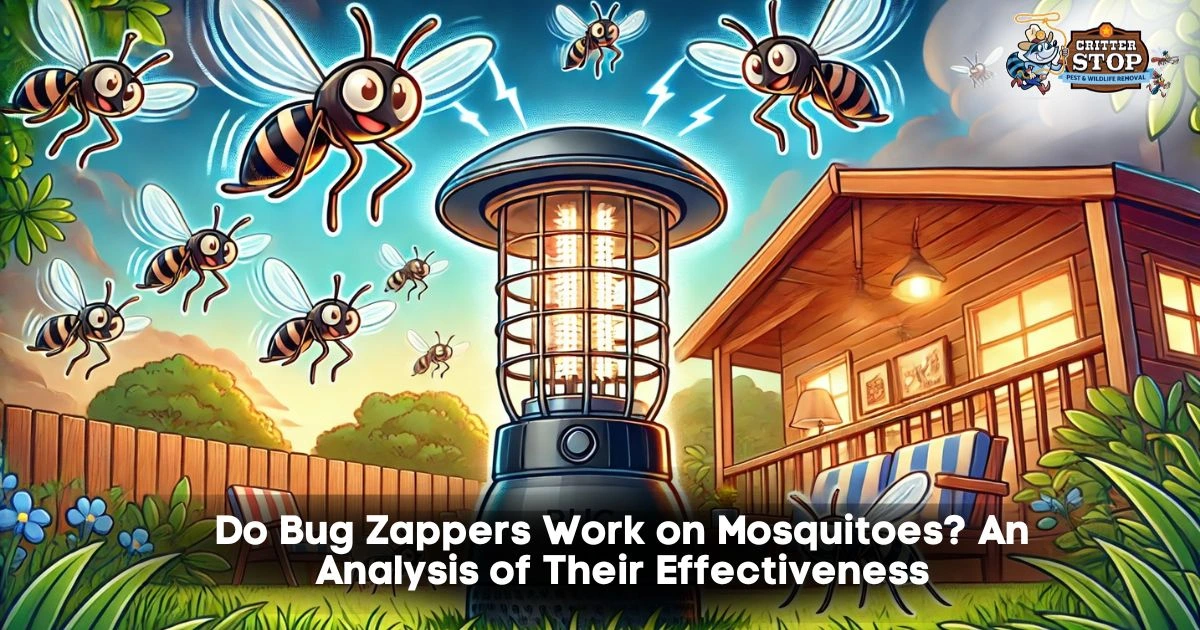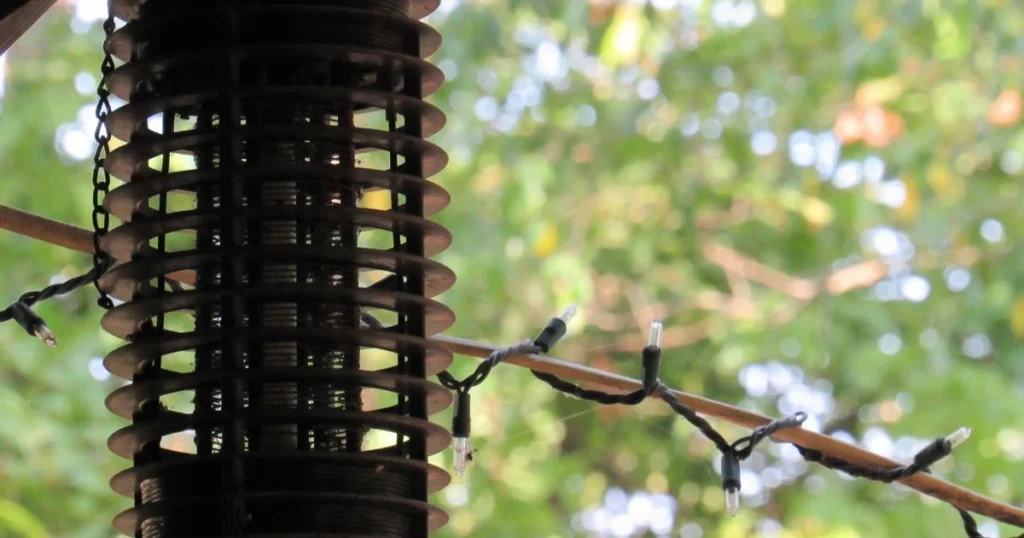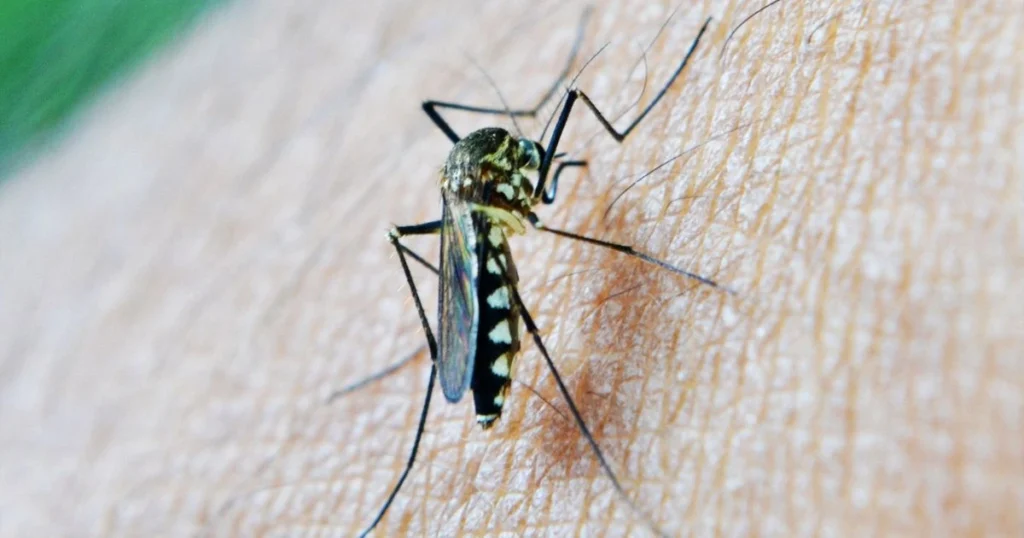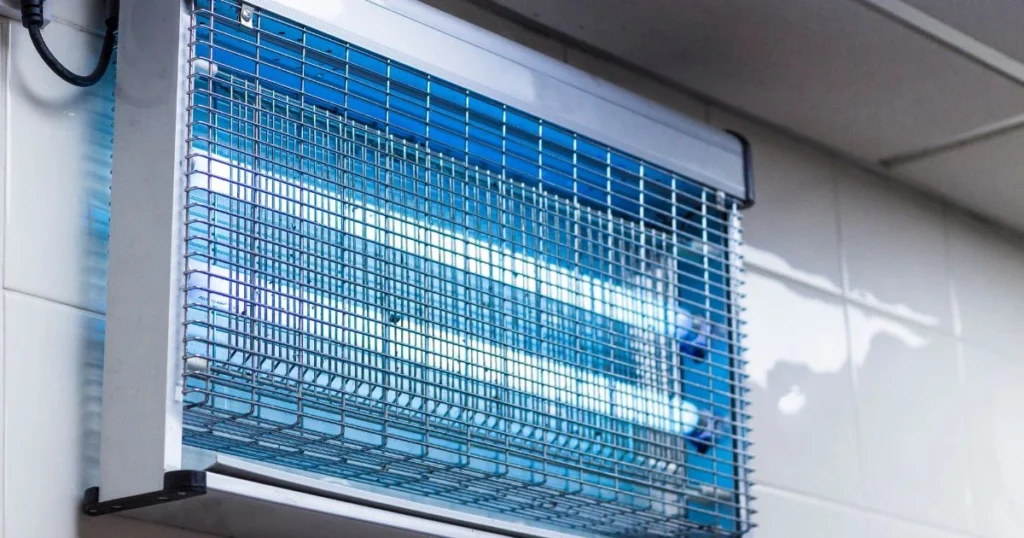
Many people wonder whether bug zappers are effective at eliminating mosquitoes. The truth is that while bug zappers can attract some insects, they are not very effective at targeting mosquitoes specifically. Unlike other pests, mosquitoes are more drawn to carbon dioxide and body heat than to the light emitted by zappers.
Research indicates that mosquitoes are not particularly attracted to bug zappers. Instead, they prefer sources that emit warmth and carbon dioxide, which human bodies naturally produce. As a result, relying solely on bug zappers to control mosquito populations may not yield significant results.
Alternative methods may be necessary for those seeking effective mosquito control. Understanding the limitations of bug zappers can help individuals make informed choices about managing these pesky insects.

Bug zappers are designed to attract and eliminate various flying insects, including mosquitoes. They provide a solution for reducing pest populations in outdoor spaces, helping to create a more comfortable environment.
Bug zappers utilize ultraviolet (UV) light to attract insects. The light lures pests within a certain radius, typically up to 50 feet, depending on the strength of the device. Once the insect approaches, it comes into contact with an electrified grid, resulting in an instant zap.
Key components:
While effective for many flying insects, they may not significantly reduce mosquito populations due to their attraction preferences.
Several types of bug zappers are available, each with unique features. Understanding these variations helps in selecting the best bug zapper for mosquitoes.
Each type offers distinct advantages, catering to different needs for mosquito control and comfort in various environments.

Understanding the effectiveness of bug zappers against mosquitoes involves examining their attraction to light and how they compare to alternative control methods. The results can affect the choices individuals make for pest management.
Mosquitoes are generally attracted to carbon dioxide and body heat rather than light. Despite this, some species may be drawn to the ultraviolet (UV) light emitted by bug zappers. Research indicates that while UV lights can attract various flying insects, the attraction for mosquitoes is minimal.
Studies show that bug zappers kill mosquitoes, but not as effectively as one might hope. Many reports suggest that fewer than 5% of insects killed by these devices are mosquitoes. Therefore, while they may catch a few, they are unreliable for controlling mosquito populations.
When compared to other mosquito control methods, bug zappers often fall short. Methods like insect repellents, traps explicitly designed for mosquitoes, and eliminating standing water are generally more effective.
For instance, using insect repellents can prevent bites on skin, while specialized traps can target mosquitoes directly through attractants they prefer. These alternative methods often yield better results in controlling mosquito populations than bug zappers.
Selecting the best bug zapper for mosquitoes can also be misleading. Many models available focus on attracting a wide variety of insects, leading to less targeted effectiveness.
For homeowners struggling with mosquito problems, utilizing comprehensive control strategies may provide superior results. For assistance with effective pest removal, contacting Critter Stop at (214) 234-2616 can be beneficial. The company is known for its high-quality work and excellent customer service, earning a strong reputation in wildlife management.

This section addresses common inquiries regarding the effectiveness of bug zappers on mosquitoes and offers practical recommendations for selecting the right device.
Bug zappers can be less effective in areas with high humidity. Mosquitoes thrive in such conditions, making them more challenging to control. The zappers may attract fewer mosquitoes because their preferred breeding habitats are often nearby.
During peak mosquito season, bug zappers might not significantly reduce mosquito populations. Mosquitoes are highly abundant, and zappers may be unable to keep up with their numbers. They catch some mosquitoes but often do not suffice for complete population control.
When selecting a bug zapper for mosquitoes, look for UV lights and a high-voltage grid. These features increase the likelihood of attracting and killing mosquitoes. Additionally, models with traps or collection trays should be considered for easier maintenance.
The best bug zapper for suburban settings often includes a wide coverage area and durable construction. Models like the Flowtron BK-15D are frequently recommended for their effectiveness and ease of use. They attract mosquitoes from greater distances, ensuring better control.
Yes, mosquitoes can be attracted to bug zappers designed for other pests. The light emitted by these devices draws various insects, including mosquitoes. While they may not be the primary target, zappers can still catch many.
Visit our Critter Library and learn more about our furry friends